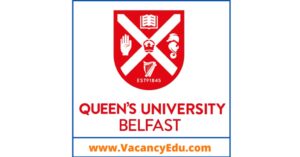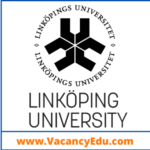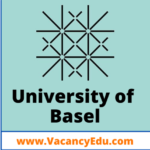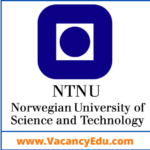Queen’s University Belfast, United Kingdom invites online Application for number of Fully Funded PhD Degree at various Departments. We are providing a list of Fully Funded PhD Programs available at Queen’s University Belfast, United Kingdom.
Eligible candidate may Apply as soon as possible.
(01) PhD Degree – Fully Funded
PhD position summary/title: BENCHMARKING SOCIAL VALUE FOR INFRASTRUCTURE PROJECTS
The primary focus of social value initiatives in the field of engineering has mostly centred on promoting inclusivity within the internal composition of the workforce. Nevertheless, there remains a noticeable deficiency in effectively addressing the issue of fair inclusion for external stakeholders in the context of infrastructure design and execution. A comprehensive examination is warranted to address the identified deficiency. Building on prior exploratory efforts, the aim of this PhD is to establish a robust and scholarly theoretical foundation for enhancing community engagement for infrastructure projects. This foundational work will propose a new theory, insights from complex social networks, and cross-disciplinary knowledge to develop a formidable theoretical framework for understanding and enhancement of community engagement dynamics. Here, the emphasis will be on formulating theories and governing principles conducive to effective examination and conflict resolution tailored to community involvement for infrastructure projects.
Deadline : 1 July 2024
(02) PhD Degree – Fully Funded
PhD position summary/title: SPACE/TERRESTRIAL COMMS AND SECURITY – JOINTLY WITH UNIVERSITY OF SURREY
Future communication systems toward 6G and beyond are expected to be open, secure and resilient integrations of different networks with the goals of overcoming the digital divide, whilst still being economically viable. This requires seamless integrations of space and terrestrial mobile systems into a uniform Network of Networks (NoN). Today’s digital society involves a wide variety of networks, such as public cellular, satellite/UAV (Unmanned Aerial Vehicle), optical, WiFi and personal body-area networks. Despite the benefits in their integration for m¬itigating the fundamental digital divide, there remain profound research challenges in terms of interoperability, highly reliable end-to-end performances, seamless cross-network mobility, network automation, security and resilience.
Deadline : 30 June 2024
View All Fully Funded PhD Positions Click Here
(03) PhD Degree – Fully Funded
PhD position summary/title: TRUSTWORTHY AI FOR SECURE FUTURE OPEN NETWORKS – JOINTLY WITH UNIVERSITY OF SURREY
Future communication systems toward 6G and beyond are expected to be open, secure and resilient integrations of different networks with the goals of overcoming the digital divide, whilst still being economically viable. This requires seamless integrations of space and terrestrial mobile systems into a uniform Network of Networks (NoN). Today’s digital society involves a wide variety of networks, such as public cellular, satellite/UAV (Unmanned Aerial Vehicle), optical, WiFi and personal body-area networks. Despite the benefits in their integration for m¬itigating the fundamental digital divide, there remain profound research challenges in terms of interoperability, highly reliable end-to-end performances, seamless cross-network mobility, network automation, security and resilience.
Deadline : 30 June 2024
(04) PhD Degree – Fully Funded
PhD position summary/title: SECURE AND TRUSTWORTHY HARDWARE – JOINTLY WITH UNIVERSITY OF SURREY
We need to ensure that the hardware that will underpin future comms infrastructure is secure and trustworthy. Cyber vulnerabilities in hardware cannot be easily patched (unlike software). PhD projects on this topic will address the open research challenge of how to deliver trusted and resilient hardware for future fully virtualised communications systems. Research into post-quantum cryptography and linking advanced cryptographic approaches (e.g identity-based encryption) and hardware security to achieve hardware-rooted security could provide verifiability, anti-tampering, anti-counterfeiting properties to future communication infrastructures. Such technologies could also be used to mitigate against the possible leakage of sensitive information in integrated communications and sensing systems of the future.
Deadline : 30 June 2024
(05) PhD Degree – Fully Funded
PhD position summary/title: AI-ASSISTED PHYSICAL LAYER SECURITY – JOINTLY WITH UNIVERSITY OF SURREY
Traditional approaches in research of the physical layer of communication systems and their security rely on rigorous mathematical modelling of the system and environment. Such approaches rely on various simplifications that undermine the fidelity of the models and the efficiency of the designs in highly dynamic wireless environments. As the complexity of the environment, and the demand for more efficient and adaptable/reconfigurable physical layers, increases in the context of 5G and 6G, traditional approaches become less effective. PhD projects in this topic will therefore address emerging AI/ML technology that offers an entirely new framework that is data-driven for use in the ML-based analysis and design of secure physical layers for future networks. In addition, the nature of physical layer security solutions is characterized by increased ambiguity owing to the presence of attackers whose behaviour cannot be readily modelled but can be learned from the available data. Hence, AI-assisted approaches will be investigated to address these research challenges.
Deadline : 30 June 2024
Polite Follow-Up Email to Professor : When and How You should Write
Click here to know “How to write a Postdoc Job Application or Email”
(06) PhD Degree – Fully Funded
PhD position summary/title: QUANTUM VISUALISATION WITH SINGLE PHOTON EMITTERS: THEORY AND EXPERIMENTATION
This PhD project aims to harness the capabilities of solid-state emitters for integration with photonic devices and connecting them through an optical channel known as a waveguide. When coupled with the waveguide, emitters can interact with guided electromagnetic modes, exchanging energy and information. The term ‘cooperativity’ signifies the extent of their interaction with the guided mode and the mode’s capability to mediate interactions between distant individual emitters [1-3]. The research objective is to investigate the degree to which cooperative interactions among waveguide-coupled emitters enable them to withstand external decoherence effects in solid-state hosts. This investigation aims to enhance entanglement generation between solid-state qubits, enabling scalable quantum networking. Additionally, it seeks to facilitate interaction among individual emitters for synchronized emission events, providing benefits in quantum sensing and metrology. This includes developing experimental and computational tools tailored for the seamless integration of single emitters into nanoscale optical waveguides. It also involves consideration of quantum emitters such as vacancy centres in nanodiamonds, two-dimensional materials, and semiconductor nanocrystals, as well as architectures for chip integration.
Deadline : 30 June 2024
(07) PhD Degree – Fully Funded
PhD position summary/title: 3D PRINTED FLEXIBLE STRAIN SENSORS FOR HEALTHCARE AND SOFT ROBOTIC APPLICATIONS
Develop the next generation of flexible strain sensors via an innovative fusion of nanotechnology and 3D printing. Formulate high-performance polymer nanocomposites filled with carbon nanotubes or graphene. Optimise the dispersion and orientation of the nanofiller and develop materials that can transduce mechanical strains into precise electrical signals. Through hands-on 3D printing, give physical shape to your material innovations. Validate sensor performance for wearable and soft robotics applications. Acquire broadly applicable skills in an emerging field with tremendous technological potential at the vibrant intersection of materials science and mechanical engineering.
Flexible strain sensors made from polymer nanocomposites can be used for soft robotics and for monitor human activities through wearable devices. By transducing mechanical deformations into electrical signals, they can measure respiration rate, joint motions, etc. These capacitive, resistive, or piezoelectric devices capitalise on polymers’ stretchability combined with nanofillers’ strength. Additive manufacturing through 3D printing facilitates shaping novel materials with heightened sensor sensitivity.
Deadline : 21 June 2024
(08) PhD Degree – Fully Funded
PhD position summary/title: DEVELOPMENT AND OPTIMISATION OF THE DEMAGNETISATION PROCESS OF END-OF-LIFE PERMANENT MAGNETS
This PhD project will investigate optimised demagnetisation of end-of-life magnets using different heat sources, such as infrared, induction furnaces, or microwave heating. The project will model heat transfer and magnetic domain evolution using multiphysics simulation software like COMSOL. Different heating methods and configurations will be simulated to predict optimal thermal demagnetisation. Validation will be through lab-scale demagnetisation experiments with magnetic properties evaluated using sensitive SQUID magnetometry. The effect of heating parameters on microstructure will also be analysed.
Deadline : 21 June 2024
Click here to know “How to Write an Effective Cover Letter”
(09) PhD Degree – Fully Funded
PhD position summary/title: METAL 3D PRINTING FOR BIODEGRADABLE ORTHOPAEDIC IMPLANTS: INNOVATIONS IN MAGNESIUM ALLOY APPLICATIONS
The increasing use of biodegradable metals in orthopaedic implants is driven by the needs of an aging global population and rising health challenges. These metals are transforming orthopaedic surgeries by stabilising bone tissue during healing, naturally degrading, and being absorbed by the body, thus eliminating secondary surgeries. This shift not only reduces patient distress and healthcare costs but also aligns with the growing focus on sustainability in healthcare. Our project aims to enhance the functionality of biodegradable Magnesium (Mg) implants using advanced metal 3D printing techniques like Selective Laser Melting (SLM). However, the rapid corrosion of Mg alloys in body fluids presents a significant challenge, which we address by developing innovative biodegradable coatings from PLA/Chitosan and PLA/Cellulose. These coatings are designed to control degradation while maintaining non-toxic and antimicrobial properties, optimising the use of Mg alloys in orthopaedic applications.
Deadline : 21 June 2024
(10) PhD Degree – Fully Funded
PhD position summary/title: DELIVERING SUSTAINABLE AVIATION: STRUCTURAL MODELLING OF HYDROGEN-POWERED AIRCRAFT
To deliver zero-emission aviation by the 2050 there are a range of potential alternative sustainable propulsion system technologies under development. Hydrogen combusting turbofans and hydrogen-powered fuel cells are among the most promising options, alongside SAF and full/hybrid electric solutions. No ‘one size fits all’ solution is likely for the future aerospace sector, with various combinations of the alternative propulsive technologies potentially proving optimal for different aircraft requirements. With existing aircraft modelling approaches and design philosophies dictated by understanding of conventional aircraft, and often restricting design freedom, there is a need for new modelling capability that is sufficiently flexible, adaptable and dynamic to incorporate the wide and ever-evolving design space of novel propulsion system technologies and accelerate the route to identifying the most optimal design solution.
Deadline : 21 June 2024
Connect with Us for Latest Job updates
(11) PhD Degree – Fully Funded
PhD position summary/title: ADVANCED PLASMA PROCESSING OF BIO-BASED MATERIALS FOR POTENTIAL PACKAGING APPLICATIONS
This is a multi-disciplinary project with close collaboration with industrial partners and researchers from different Schools/Universities. The research focuses on the development of innovative material processing technology to produce eco-friendly packaging materials derived from renewable sources (such as plant and food wastes). Through the application of cutting-edge plasma technology, we aim to modify the mechanical, barrier, and thermal properties of natural materials like alginate, animal/plant proteins, and extend their use in potential applications such as green packaging. Through controlled plasma parameters, we aim to optimize the materials for sustainability and enhanced functionality / performance.
Deadline : 21 June 2024
Polite Follow-Up Email to Professor : When and How You should Write
(12) PhD Degree – Fully Funded
PhD position summary/title: MAPPING AND VALORISATION OF BEEF PRODUCTION CO-PRODUCT & WASTE STREAMS
Supported by Lifecycle Assessment, this project will utilise waste streams from Dawn Meats for the recovery of organic and inorganic compounds including, but not limited to, cellulose, proteins and hydroxyapatite. The primary aim is to identify opportunities for the realisation of additional value streams from the beef industry.
Dawn Meats, established in Co. Waterford, Ireland in 1980, has grown to a business with over €2bn in annual revenue, employing over 8,000 staff in twelve countries. Within their portfolio, Dunbia, employing over 5,000 across 15 sites in N.I ROI and GB, is one of Europe’s leading food companies specialising in the production of quality beef, lamb, further processed and slow cooked products. With a global focus on improved resource stewardship across all sectors Dawn Meats recognise that agricultural waste represents a reserve of unexploited resources that can provide avenues for economic growth while promoting improved waste management practices.
Deadline : 21 June 2024
(13) PhD Degree – Fully Funded
PhD position summary/title: DEVELOPING NEXT GENERATION SUSTAINABLE PACKAGING USING COMPUTER AIDED ENGINEERING.
This Ph.D. opportunity merges finite element modeling with advanced constitutive models to optimize packaging structures. Dive into unraveling paper’s mechanical behavior, predicting performance, and shaping sustainable industry standards. Join us in pushing the boundaries of innovation and leaving a lasting impact on the environmental impact of packaging.
Welcome to an exciting journey at the intersection of innovation and sustainability! In this project, we’re diving into the fascinating world of paper-based packaging design, where every fold, crease, and structure holds the key to revolutionizing how products are safeguarded and transported.
Deadline : 21 June 2024
(14) PhD Degree – Fully Funded
PhD position summary/title: DIGITAL TWINNING FOR ROBOTIC MANUFACTURING SYSTEMS
This project seeks to fill a gap in digital technologies and applications for the simulation and operation of automated production systems in the manufacturing sector. The main aims are to develop means by which the accuracy and precision of virtual / simulated robotic operations can be improved making them more positionally representative of a real system at a pre-production stage. The work also seeks to enable the development of a digital twin framework where real production data can be fed to a virtual model enabling more effective operations through real time digital monitoring and process changes when required. This project will be carried out within a large research team (including academics, PhDs and Post-Doctoral researchers) working in partnership with industrial experts. The successful candidate will spend time embedded within the Advanced Manufacturing Innovation Centre (AMIC) in order to drive the research and to acquire valuable industrial experience in preparation for their future career.
Deadline : 21 June 2024
(15) PhD Degree – Fully Funded
PhD position summary/title: DEVELOPMENT OF BIORESORBABLE IMPLANTS FOR THE REPAIR AND REGENERATION OF KNEE JOINT
This project offers a unique opportunity for a highly motivated PhD student with an engineering background to contribute to the development of a novel biological implants with the potential to improve the lives of countless individuals suffering from joint defects or degeneration and its debilitating consequences. This PhD project aims to develop bioresorbable implants for regenerating damaged articular cartilage in the knee joint. The project will employ a unique combination of advanced polymers (bio), 3D printing technique such as Melt Electro-Writing (MEW) for creating highly organized scaffolds, and finite element analysis (FEA) for computational optimization. This is a follow-up project for the current North-South research grant in collaboration between QUB and Trinity College Dublin.
Deadline : 21 June 2024
(16) PhD Degree – Fully Funded
PhD position summary/title: HIGH STRENGTH BEARING ALLOYS BY RECYCLING ZN ALLOYS
This project will meanly investigate the metallurgical properties of modified Zn-Al bearing alloy with RE additions. The properties of cast alloy depend on many factors. The most important is chemical composition because each of the elements affects individually or the components increase (eventually decrease) their mutual influence on the structure and properties of the alloy. This work will investigate the effects of the rare earth concentration on the quality of the modification rate of the Zn-Al bearing alloy by monitoring the metallurgical phase transformation parameters during solidification. Furthermore, metallographic examinations will be conducted through SEM and optical microscope (OM) analyses to correlate the thermal analysis results with the corresponding microstructures. Hardness, wear resistance, and tensile tests will also be performed to test the mechanical properties of the treated alloys. In addition, the corrosion behavior of Zn-Al alloy with different rare earth-modified values will be carried out. The expected outcome of this research is to introduce a new high-strength Zn-Al alloy compared to common alloys which might contribute to high-quality bearing production.
Deadline : 21 June 2024
(17) PhD Degree – Fully Funded
PhD position summary/title: DEVELOPMENT AND OPTIMISATION OF THE DEMAGNETISATION PROCESS OF END-OF-LIFE PERMANENT MAGNETS
Efficient demagnetisation of end-of-life permanent magnets is critical for recycling rare earths and metals, but current industrial processes use energy-intensive thermal treatment. This PhD project will investigate optimised, sustainable demagnetisation methods using multiphysics simulations and lab experiments with different heat sources like infrared, induction furnaces, and microwaves. By modeling heat transfer and magnetic domain evolution in COMSOL, we will predict optimal configurations and parameters for thermal demagnetisation. Validations will be through demagnetisation experiments, with magnetic properties evaluated via SQUID magnetometry. We aim to deliver optimised protocols to minimise energy use while maintaining material integrity, advancing physics and engineering principles for sustainable magnet recycling.
Deadline : 21 June 2024
(18) PhD Degree – Fully Funded
PhD position summary/title: 3D PRINTED FLEXIBLE STRAIN SENSORS FOR HEALTHCARE AND SOFT ROBOTIC APPLICATIONS
Develop the next generation of flexible strain sensors via an innovative fusion of nanotechnology and 3D printing. Formulate high-performance polymer nanocomposites filled with carbon nanotubes or graphene. Optimise the dispersion and orientation of the nanofiller and develop materials that can transduce mechanical strains into precise electrical signals. Through hands-on 3D printing, give physical shape to your material innovations. Validate sensor performance for wearable and soft robotics applications. Acquire broadly applicable skills in an emerging field with tremendous technological potential at the vibrant intersection of materials science and mechanical engineering.
Deadline : 21 June 2024
(19) PhD Degree – Fully Funded
PhD position summary/title: METAL 3D PRINTING FOR BIODEGRADABLE ORTHOPAEDIC IMPLANTS: INNOVATIONS IN MAGNESIUM ALLOY APPLICATIONS
The increasing use of biodegradable metals in orthopaedic implants is driven by the needs of an aging global population and rising health challenges. These metals are transforming orthopaedic surgeries by stabilising bone tissue during healing, naturally degrading, and being absorbed by the body, thus eliminating secondary surgeries. This shift not only reduces patient distress and healthcare costs but also aligns with the growing focus on sustainability in healthcare. Our project aims to enhance the functionality of biodegradable Magnesium (Mg) implants using advanced metal 3D printing techniques like Selective Laser Melting (SLM). However, the rapid corrosion of Mg alloys in body fluids presents a significant challenge, which we address by developing innovative biodegradable coatings from PLA/Chitosan and PLA/Cellulose. These coatings are designed to control degradation while maintaining non-toxic and antimicrobial properties, optimising the use of Mg alloys in orthopaedic applications.
Deadline : 21 June 2024
How to increase Brain Power – Secrets of Brain Unlocked
(20) PhD Degree – Fully Funded
PhD position summary/title: DELIVERING SUSTAINABLE AVIATION: STRUCTURAL MODELLING OF HYDROGEN-POWERED AIRCRAFT
To deliver zero-emission aviation by the 2050 there are a range of potential alternative sustainable propulsion system technologies under development. Hydrogen combusting turbofans and hydrogen-powered fuel cells are among the most promising options, alongside SAF and full/hybrid electric solutions. No ‘one size fits all’ solution is likely for the future aerospace sector, with various combinations of the alternative propulsive technologies potentially proving optimal for different aircraft requirements. With existing aircraft modelling approaches and design philosophies dictated by understanding of conventional aircraft, and often restricting design freedom, there is a need for new modelling capability that is sufficiently flexible, adaptable and dynamic to incorporate the wide and ever-evolving design space of novel propulsion system technologies and accelerate the route to identifying the most optimal design solution.
Deadline : 21 June 2024
(21) PhD Degree – Fully Funded
PhD position summary/title: MAPPING AND VALORISATION OF BEEF PRODUCTION CO-PRODUCT & WASTE STREAMS
Dawn Meats, established in Co. Waterford, Ireland in 1980, has grown to a business with over €2bn in annual revenue, employing over 8,000 staff in twelve countries. Within their portfolio, Dunbia, employing over 5,000 across 15 sites in N.I ROI and GB, is one of Europe’s leading food companies specialising in the production of quality beef, lamb, further processed and slow cooked products. With a global focus on improved resource stewardship across all sectors Dawn Meats recognise that agricultural waste represents a reserve of unexploited resources that can provide avenues for economic growth while promoting improved waste management practices.
This collaborative project involves an investigation into the utilization of organic waste streams emanating from the local beef sector, particularly focusing on protein and plant material. Initially, the project entails reviewing existing literature and technologies relevant to waste utilization. Subsequent phases include conducting a lifecycle analysis (LCA) of waste stream management, mapping and quantifying waste sources, characterizing raw materials, and identifying potential co-products. The extraction and characterization of valuable compounds from organic waste streams are central to the project.
Deadline : 21 June 2024
(22) PhD Degree – Fully Funded
PhD position summary/title: ADVANCED PLASMA PROCESSING OF BIO-BASED MATERIALS FOR POTENTIAL PACKAGING APPLICATIONS
This is a multi-disciplinary project with close collaboration with industrial partners and researchers from different Schools/Universities. The research focuses on the development of innovative material processing technology to produce eco-friendly packaging materials derived from renewable sources (such as plant and food wastes). Through the application of cutting-edge plasma technology, we aim to modify the mechanical, barrier, and thermal properties of natural materials like alginate, animal/plant proteins, and extend their use in potential applications such as green packaging. Through controlled plasma parameters, we aim to optimize the materials for sustainability and enhanced functionality / performance.
Deadline : 21 June 2024
(23) PhD Degree – Fully Funded
PhD position summary/title: DEVELOPING NEXT GENERATION SUSTAINABLE PACKAGING USING COMPUTER AIDED ENGINEERING.
This Ph.D. opportunity merges finite element modeling with advanced constitutive models to optimize packaging structures. Dive into unraveling paper’s mechanical behavior, predicting performance, and shaping sustainable industry standards. Join us in pushing the boundaries of innovation and leaving a lasting impact on the environmental impact of packaging.
Welcome to an exciting journey at the intersection of innovation and sustainability! In this project, we’re diving into the fascinating world of paper-based packaging design, where every fold, crease, and structure holds the key to revolutionizing how products are safeguarded and transported.
Deadline : 21 June 2024
(24) PhD Degree – Fully Funded
PhD position summary/title: DIGITAL TWINNING FOR ROBOTIC MANUFACTURING SYSTEMS
This project seeks to fill a gap in digital technologies and applications for the simulation and operation of automated production systems in the manufacturing sector. The main aims are to develop means by which the accuracy and precision of virtual / simulated robotic operations can be improved making them more positionally representative of a real system at a pre-production stage. The work also seeks to enable the development of a digital twin framework where real production data can be fed to a virtual model enabling more effective operations through real time digital monitoring and process changes when required. This project will be carried out within a large research team (including academics, PhDs and Post-Doctoral researchers) working in partnership with industrial experts. The successful candidate will spend time embedded within the Advanced Manufacturing Innovation Centre (AMIC) in order to drive the research and to acquire valuable industrial experience in preparation for their future career.
Deadline : 21 June 2024
(25) PhD Degree – Fully Funded
PhD position summary/title: DEVELOPMENT OF BIORESORBABLE IMPLANTS FOR THE REPAIR AND REGENERATION OF KNEE JOINT
This project offers a unique opportunity for a highly motivated PhD student with an engineering background to contribute to the development of a novel biological implants with the potential to improve the lives of countless individuals suffering from joint defects or degeneration and its debilitating consequences. This PhD project aims to develop bioresorbable implants for regenerating damaged articular cartilage in the knee joint. The project will employ a unique combination of advanced polymers (bio), 3D printing technique such as Melt Electro-Writing (MEW) for creating highly organized scaffolds, and finite element analysis (FEA) for computational optimization. This is a follow-up project for the current North-South research grant in collaboration between QUB and Trinity College Dublin.
Deadline : 21 June 2024
(26) PhD Degree – Fully Funded
PhD position summary/title: HIGH STRENGTH BEARING ALLOYS BY RECYCLING ZN ALLOYS
This project will meanly investigate the metallurgical properties of modified Zn-Al bearing alloy with RE additions. The properties of cast alloy depend on many factors. The most important is chemical composition because each of the elements affects individually or the components increase (eventually decrease) their mutual influence on the structure and properties of the alloy. This work will investigate the effects of the rare earth concentration on the quality of the modification rate of the Zn-Al bearing alloy by monitoring the metallurgical phase transformation parameters during solidification. Furthermore, metallographic examinations will be conducted through SEM and optical microscope (OM) analyses to correlate the thermal analysis results with the corresponding microstructures. Hardness, wear resistance, and tensile tests will also be performed to test the mechanical properties of the treated alloys. In addition, the corrosion behavior of Zn-Al alloy with different rare earth-modified values will be carried out. The expected outcome of this research is to introduce a new high-strength Zn-Al alloy compared to common alloys which might contribute to high-quality bearing production.
Deadline : 21 June 2024
(27) PhD Degree – Fully Funded
PhD position summary/title: RETHINKING THE DESIGN PARADIGM WITH HELP FROM NATURAL LANGUAGE
A major challenge facing society is the generation of waste in manufacturing of products and goods that we use. This is even before we even consider waste generated by consumers. Design plays an important part, but designing products with minimum waste has a complex set of requirements that are difficult to articulate in a design system. This PhD project will use state of the art AI technology including large language models (e.g. ChatGPT) as part of a novel natural language interface to explore how design descriptions can be translated from a simple language interface to engineering design models that minimise waste in the manufacturing process. It will also explore how the completed designs can be interpreted and explained to the non-expert user to aid in decision making.
Deadline : 21 June 2024
(28) PhD Degree – Fully Funded
PhD position summary/title: DESIGNING FOR SUSTAINABILITY – REDUCING WASTE IN MANUFACTURING
The UK Net Zero Strategy published in October 2021 reflects the urgency of action needed to avoid climate catastrophe and transition to a green economy. A major challenge within this is the issue of waste in the manufacturing process and the need to design components such that as little as possible material is wasted in manufacturing. This PhD project will use state of the art AI technology, artificial evolution and advanced design systems and simulation methods to enable the design of aircraft structures with minimal waste.
Deadline : 21 June 2024
(29) PhD Degree – Fully Funded
PhD position summary/title: FAULT TOLERANT POST QUANTUM CRYPTOGRAPHY SYSTEMS FOR SATELLITE COMMUNICATIONS
The number of space-based entities and missions is showing exceptional increase. The range of use-cases include users to connect businesses and communities around the world, to provide communications, surveillance, weather, and navigation in mission-critical situations. The longevity of satellites and their associated infrastructure along with the difficulty of changing anything after the launch requires long-term public key cryptography security solutions. Since the foreseeable breakthrough of quantum computers represents a risk for the traditional secure communication paradigm used today, novel Quantum-resistant cryptographic schemes need the immediate attention of the cryptographic community, especially of long-term use cases like satellite communications. This project will provide the first comprehensive analysis and implementation of novel Quantum-resistant cryptographic communication implementation in the context of the corresponding requirements for the use-case of aerospace and satellite communication. We will follow the recommendations from the NIST initiated the Post Quantum Cryptography (PQC) competition that announced the first suite of quantum-safe cryptographic algorithm schemes after three rounds in 2022 to replace the Public Key Cryptography standards in use today. To protect satellite communications, a key establishment protocol with mutual authentication is required. Space environments are challenging due to a variety of reasons, e.g., their strict requirements (limited bandwidth of the telecommand uplink channel, high communication latency, low power). In addition, due to the harsh physical environment in space the security protocols, the security solutions should be fault tolerant both at the algorithmic level and the physical level (e.g., the use of specialised Space-Grade PFGAs that exhibit lower performance in comparison).
Deadline : 11 June 2024
(30) PhD Degree – Fully Funded
PhD position summary/title: LIGHTWEIGHT POST QUANTUM CRYPTOGRAPHY FOR IOT DEVICES
The security infrastructure we rely on today is considered largely broken when a scalable quantum computer is successfully realized. That is because the Quantum algorithms (Shor’s algorithm, Grover’s search algorithm) can break the widely used RSA and ECC families of Public Key Cryptography (PKC), while halving the security strength of symmetric key cryptographic algorithms (including hashes and AES). Several government agencies, including the National Security Agency (NSA), Communications-Electronics Security Group (CESG), and the National Institute of Standards and Technology (NIST) have reacted to this urgency, with NIST initiating the Post Quantum Cryptography (PQC) competition in 2016 that concluded with a new suite of quantum-safe cryptographic algorithms in 2022 to replace the Public Key Cryptography standards in use today. What all finalist Quantum resistant algorithms have in common is that they are more computationally intensive with larger key size and memory footprints than today’s classical approaches. Hence, the limited computational power of edge node devices with limited computational and storage capability makes implementation of quantum resistant schemes a challenge. Oftentimes, these edge nodes operate in an embedded setting where an adversary can manipulate/ attack them via Side-channel Analysis attacks (including power, EM, time channels).
Deadline : 11 June 2024
(31) PhD Degree – Fully Funded
PhD position summary/title: SPECTROSCOPIC IMAGING WITH QUANTUM CORRELATED PHOTONS
The objective of this project is to investigate the spontaneous parametric down-conversion (SPDC) process and pinpoint the key factors influencing the efficiency of entangled photon production. Our focus will be on examining both nonlinear bulk materials and cutting-edge nonlinear metasurfaces. We intend to explore the propagation characteristics and bandwidth of entangled photons, as well as the impact of the nonlinear medium on the SPDC process. Ultimately, we aim to demonstrate that the absorption or transmission spectrum of a material can be accurately determined using this quantum system. Another objective of this project is to demonstrate ghost imaging using entangled photons.
Deadline : 11 June 2024
(32) PhD Degree – Fully Funded
PhD position summary/title: SECURING FUTURE QUANTUM NETWORKS
This project will focus on building on and advancing post-quantum cryptography schemes, for potential use in future quantum hybrid networks. The objectives of this project are:
1. Become familiar with PQC and evaluate current advanced cryptography techniques.
2. Identify any potential limitations, gaps, or weaknesses in cutting-edge PQC architectures.
3. Design novel cryptography solutions, using algorithmic, software or hardware optimisations to address identified limitations, for example in attribute-based signatures, or group signatures.
4. Demonstrate proposed techniques in a working implementation on a suitable platform, benchmarking results against classical (non-PQC) schemes.
5. Consider the use of the proposed techniques within hybrid PQC-quantum networks, to enhance security and functionality.
Deadline : 11 June 2024
(33) PhD Degree – Fully Funded
PhD position summary/title: QUANTUM-SAFE SYSTEM-ON-CHIP DESIGN FOR DRIVER MONITORING SYSTEM
The project will develop a high-performance System-on-Chip (consisting of an accelerator and a specialized co-processor) which will run driver monitoring system and corresponding AI and ML applications optimally. Fully homomorphic encryption (FHE) allows us to apply functions of arbitrary complexity on encrypted data (ciphertext) without the need to decrypt it. This eliminates the need for private key exchanges and decrypting data at the destination if we need to send any information to anywhere else for further processing. However, computing on encrypted data results in large performance and memory overheads requiring need of efficient accelerators with high level of parallelism. In this project, quantum-safe fully homomorphic encryption algorithms will be explored for efficient implementation either directly on the main processor or as a co-processor. RISC-V open-source architecture will be used for implementation and testing will be done on Field programmable gate array (FPGA) boards from Intel and AMD. Some examples of existing SoC projects are https://github.com/sld-columbia/esp and https://github.com/IObundle/iob-soc.
Deadline : 11 June 2024
(34) PhD Degree – Fully Funded
PhD position summary/title: RUNNING LARGE QUANTUM CIRCUITS ON SMALL QUANTUM COMPUTERS
Quantum computing is a tremendously promising computing paradigm steadily fulfilling their potential. Recently, Google claimed a landmark in this field – quantum supremacy, or the ability of a quantum computer to perform in minutes a calculation which would take the highest performance supercomputer thousands of years. Devices such as the Google Sycamore processor and IBM’s Falcon devices are at the cutting edge of quantum computing today, but are still highly restricted in what they can achieve. Quantum processors remain in their infancy, similar to the state of classical computing in the 1950s. If the most powerful quantum algorithms are to ever be possible, devices thousands of times more powerful than they are today will be required. The numbers of qubits housed by quantum processors is low relative to the number required for the most useful quantum algorithms and new approaches to enable larger-scale quantum algorithms are urgently required.
Deadline : 11 June 2024
(35) PhD Degree – Fully Funded
PhD position summary/title: IMAGEN: ENHANCING PERENNIAL RYEGRASS GHG CREDENTIALS USING GENOMICS AND 3D IMAGERY TO STUDY ROOT RESPONSES TO ALGAL BIOSTIMULANTS
Perennial ryegrass (PRG), is the largest constituent of grassland-based farming and is pivotal for the Ireland/UK dairy, beef, and sheep sectors. PRG varieties, characterized by diverse root structures, wield considerable influence over carbon sequestration and nitrogen use efficiency. Notably, extended leaf lamina lengths in specific varieties contribute to enhanced grazeability and reduced stocking density and fertilizer intensity. Understanding these traits is of paramount importance for breeding elite, sustainable grass varieties that will shape the future of Irish agriculture.
Deadline : 3 June 2024
(36) PhD Degree – Fully Funded
PhD position summary/title: MODELLING-4-GRASS: MODELLING CLIMATE CHANGE IMPACTS ON GRASSLAND IN N. IRELAND
The project will utilise a combination of data-based modelling and field trial-based investigations. Historical AFBI grass testing and breeding data resources and past GrassCheck results will be used as training data for a machine learning approach to developing a dynamic model. Field studies on grass and clover monocultures, mixtures and multi-species swards will be used to ground-truth the key parameters and interaction dynamics in the model. Differing growing conditions, including drought and waterlogging, will be imposed to validate whether model outputs are accurate under stress conditions.
Student Development: The successful student will join the AFBI research team led by Dr Gillian Young with added learning input from lead researchers at Queen’s University Belfast. They will receive training in a diversity of transferable skills, including field/laboratory research techniques, statistical analyses, scientific writing and presentation skills. There will be opportunity to present to international conferences, local farmers, breeders and industry and publish in peer reviewed journals. A study period at a foreign centre of excellence may be possible. The student will gain highly sought-after expertise and knowledge in climate change mitigation strategies.
Deadline : 3 June 2024
(38) PhD Degree – Fully Funded
PhD position summary/title: OPTIMISING SPEED, ENERGY, AND QUALITY OF MACHINE LEARNING MODELS WITH TRANSPRECISE COMPUTING
Deploying ML models on wearable or portable devices is challenging due to limitations on size, weight and power of the devices. Such constraints create a tension between accuracy of the model on one hand, and its size, inference delay and power consumption on the other hand. Alternatively, communicating captured data from wearable devices to the cloud requires fast and reliable communication channels, which again add significant power consumption demands for transmission. This problem reoccurs throughout numerous applications of edge-based intelligence, including traffic control, video surveillance, cattle monitoring, and in this instance health monitoring. The goal of this PhD project is to address the tension between computational demands and model accuracy by adapting the location(s) where inference is performed and the precision of computation and communication.
Deadline : 31 May 2024
(39) PhD Degree – Fully Funded
PhD position summary/title: CLIMATE RESILIENCE OF GEOTECHNICAL SLOPE INFRASTRUCTURE
Are you passionate about combating climate change’s impact on our infrastructure? We’re seeking a highly motivated individual for a PhD research position focused on enhancing the climate resilience of geotechnical infrastructure systems. As climate-related challenges intensify, the need for innovative solutions becomes paramount. Join us in addressing this critical issue and shaping the future of resilient infrastructure. This project will Investigate the effects of climate change on geotechnical infrastructure systems and develop strategies to enhance their resilience.
Deadline : 24 May 2024
(40) PhD Degree – Fully Funded
PhD position summary/title: WALKING IN REAL-WORLD ENVIRONMENTS FOR PEOPLE LIVING WITH PARKINSON’S: ENHANCING GAIT USING MOVEMENT ANALYSIS
The main aim of this project is to investigate the extent to which strategies for reducing gait disturbances in Parkinson’s can be translated from the laboratory to real world walking environments. The objectives of the project are:
1. Reproduce selected studies which demonstrated positive effects of methods designed to reduce gait disturbance for people with Parkinson’s (e.g. listening to rhythmic sound cues), both in the SiM lab and in an outside urban walking environment
2. Compare effects of different outside walking environments, e.g. tarmac pavement vs. grass, on key clinical gait stability measures for people with Parkinson’s and age-matched controls.
Translate lab-based gait research to real-world improvements in walking stability for people with Parkinson’s.
Deadline : 17 May 2024
(41) PhD Degree – Fully Funded
PhD position summary/title: STATISTICAL ADVANCES IN HEALTH ECONOMIC MODELLING
A Health Technology Assessment (HTA) is a multidisciplinary research process that collects and summarises information about a health technology. HTA agencies receive information such as clinical trial evidence in the form of a cost-effectiveness model to compare the costs and benefits of a new drug for example, to compare to the standard of care.
As healthcare budgets are finite, to invest in a new technology requires a choice of where to place limited resources. There are also data challenges as clinical trial evidence is based on several assumptions, and extrapolation of longer-term assumptions need to be tested. Statistical methods such as survival analysis and multistate modelling can play a role in improving HTAs by better approximating how patients move between health states over time.
The National Centre for Pharmacoeconomics (NCPE) conducts the HTAs of pharmaceutical products for the Health Service Executive (HSE) in Ireland in collaboration with the HSE Corporate Pharmaceutical Unit (HSE-CPU). The aim of the centre is to promote expertise in Ireland for the advancement of the discipline of pharmacoeconomics through practice, research and education. The research conducted by the NCPE aims to support evidence-base decision making, and the NCPE has close collaborative links with international health economic academic centres. They are committed to research and development, and this project would offer significant expertise from the NCPE to Queen’s University Belfast (QUB).
Deadline : 20 May 2024
About Queen’s University Belfast, United Kingdom : Official website
Queen’s University Belfast (informally Queen’s or QUB) is a public research university in Belfast, Northern Ireland, United Kingdom. The university received its charter in 1845 as “Queen’s College, Belfast” and opened four years later.
Queen’s offers academic degrees at various levels, with approximately 300 degree programmes available. The current president and vice-chancellor is Ian Greer. The annual income of the institution for 2019–20 was £400 million of which £88.7 million was from research grants and contracts, with an expenditure of £372.7 million.
Queen’s is a member of the Russell Group of research intensive universities, the Association of Commonwealth Universities, the European University Association, Universities UK and Universities Ireland. The university is associated with two Nobel laureates and one Turing Award laureate.
Disclaimer: We try to ensure that the information we post on VacancyEdu.com is accurate. However, despite our best efforts, some of the content may contain errors. You can trust us, but please conduct your own checks too.
Related Posts
- 09 PhD Degree-Fully Funded at University of Groningen, Netherlands

- 16 PhD Degree-Fully Funded at Cranfield University, England

- 14 PhD Degree-Fully Funded at University of Liverpool, England

- 08 PhD Degree-Fully Funded at Linkoping University, Sweden

- 05 PhD Degree-Fully Funded at University of Basel, Switzerland

- 06 PhD Degree-Fully Funded at Swansea University, Wales, United Kingdom

- 22 PhD Degree-Fully Funded at University of Nottingham, Nottingham, England

- 29 PhD Degree-Fully Funded at Ghent University, Belgium

- 26 PhD Degree-Fully Funded at NTNU, Norway












